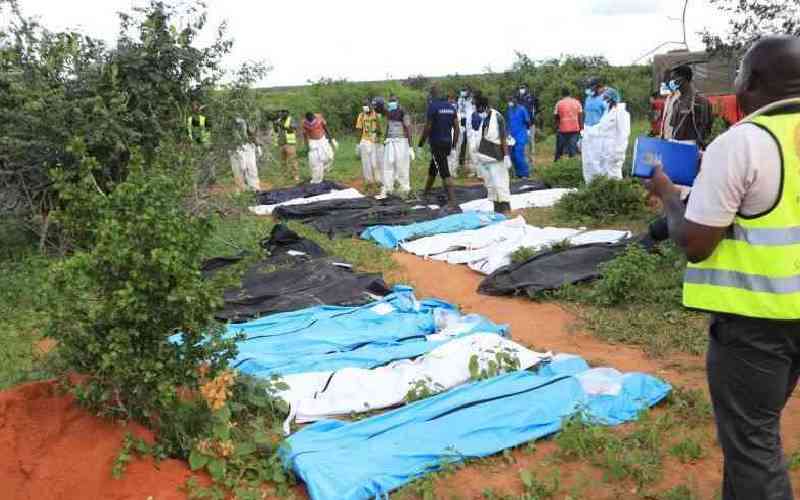×
The Standard e-Paper
Smart Minds Choose Us

A team of experts is counselling families reluctant to collect bodies of Shakahola victims from the Malindi mortuary in Kilifi county.
The social workers and therapists from the Kenya Red Cross Society (KRCS), the Directorate of Homicide, and Kilifi County hope to convince the families to pick the bodies of their kin for burial.